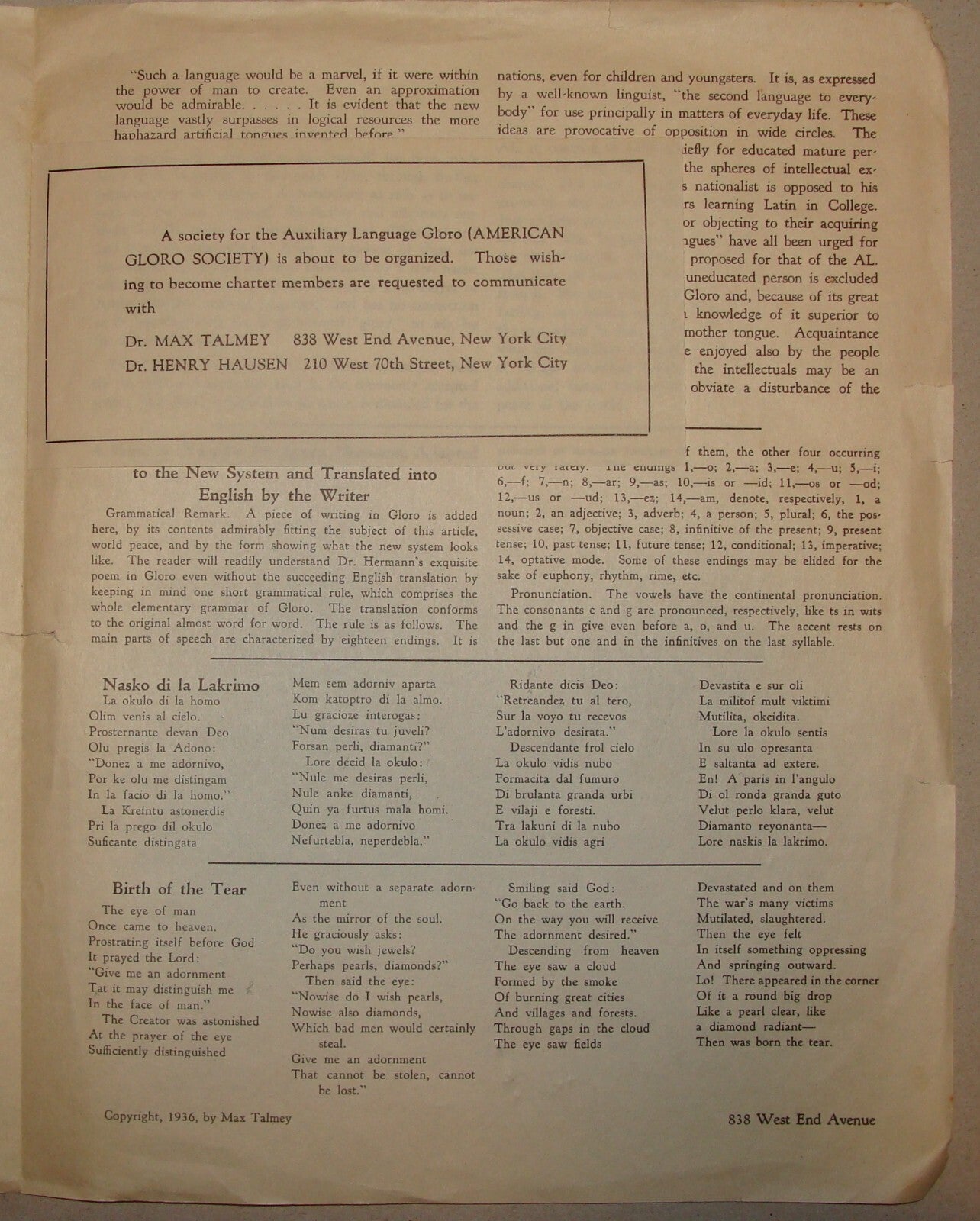1
/
of
3
IsraelPalestineHistory
Pamphlet Jewish RARE 1936 MAX TALMEY ALBERT EINSTEIN GLORO LANGUAGE Esperanto
Pamphlet Jewish RARE 1936 MAX TALMEY ALBERT EINSTEIN GLORO LANGUAGE Esperanto
Regular price
$218.90 USD
Regular price
Sale price
$218.90 USD
Quantity
Couldn't load pickup availability
RARE 1936 Jewish MAX TALMEY ALBERT EINSTEIN Pamphlet GLORO LANGUAGE Esperanto
"An Agency For World Fellowship and Peace" By Max Talmey, M. D.
Max Talmey (born Max Talmud; Yiddish: מאקס טלמוד; 1869 – November 7, 1941) was a Lithuanian-born American ophthalmologist and educator of Jewish descent, best known as Albert Einstein's teacher who introduced him to fields and books on natural sciences and philosophy, for his success in treating cataracts, and for his work on auxiliary languages.
Talmey was 21 years old when he first met Albert Einstein, who was ten years old and in his third year at the Gymnasium in Leitfold. Talmey was then attending medical school in Munich, Germany. For five years, from 1889 to 1894, Talmey was a weekly lunch guest of the Einstein family, as was Jewish custom. They would discuss topics of interest to Albert Einstein, and Talmey lent him several books on science.
Tolmi was fluent in several languages and aware of the problems of accurate translation. He supported the development of Esperanto and claimed to be the first to bring the language to the United States. In 1905, he founded the Esperanto Society of New York and became its first president. In 1906 he published the first grammar of Esperanto in the United States, but in 1907 he became disillusioned with the language and resigned from the Esperanto Society.
After switching from Esperanto, Ptolemy adopted the IDO language, but soon lost interest in it as well. In 1924 Ptolemy built his own language, Arulo (Auxiliary Rational Universal Language), later renamed GLORO, which could be considered a descendant of Esperanto. Ptolemy intended GLORO more as a "master language" for the precise exchange of ideas, such as explaining the theory of relativity to laypeople, or as another international language for general purposes like Esperanto. This precision was to be achieved by requiring that every word that could exist in GLORO have a precise and unique meaning. So words with multiple meanings in natural languages, such as solution in English, would have different corresponding words in GLORO, one for each meaning. He gave public readings of works translated into Gloro, which had similarities to Latin and Spanish. Ptolemy praised Gloro as a language of "extreme simplicity, without grammatical rules, and a pleasant sound".
Ptolemy claimed that the GLORO language would, among other things, enable a better understanding of Albert Einstein's physics.
Died in New York in 1941.
28 cm
4pp
*some stains and tears on the sides
For condition watch photos
Share







